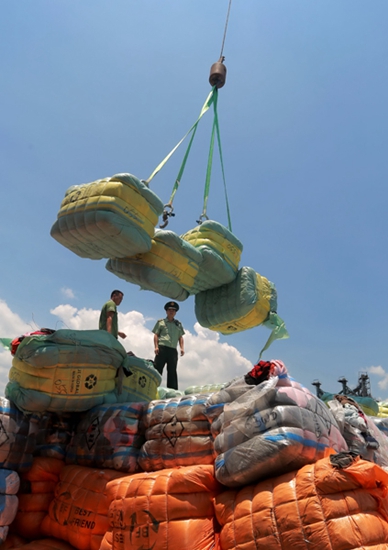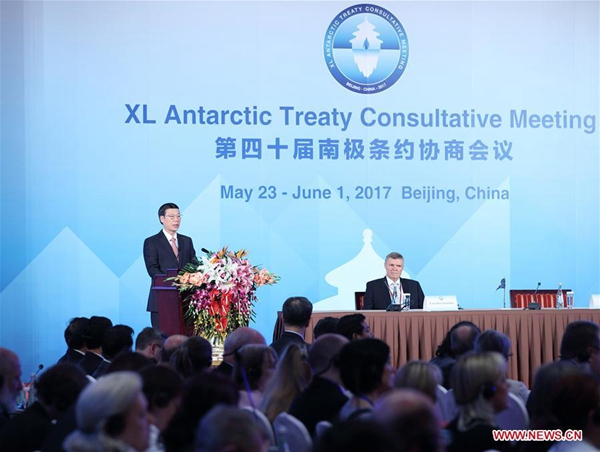Inspections of imported waste to rise
|
|
|
Border patrol officers handle parcels of used clothes that were smuggled from Hong Kong to the Chinese mainland in Shenzhen, Guangdong Province, in June last year. [File Photo/China Daily] |
Legislators have vowed to increase supervision of government departments in charge of handling imported solid waste, aiming to protect the environment and ensure public health.
The Standing Committee of the National People’s Congress will conduct inspections to ensure that the law on the prevention of solid waste pollution is being enforced.
The inspections, led by Zhang Dejiang, chairman of the NPC Standing Committee, will be conducted in 10 areas, including Tianjin, Jiangsu Province and the Guangxi Zhuang Autonomous Region. The inspections will last until the end of July, the committee said.
It is the first enforcement inspection since 2005, when the revised law took effect.
“Our aim is to protect the environment by rule of law, hoping supervision and inspections can be effective in ensuring residents’ health and improving ecological safety,” Zhang said on Monday.
“We’ll urge government departments to enforce the law, and find areas where the law needs to be improved.”
The country has drawn up a list of 66 kinds of solid waste that can be imported, including paper and plastics, to satisfy the nation’s need for raw materials for economic development, “but problems brought by illegal imports are still serious”, said Chen Jining, minister of environmental protection.
Since 2013, more than 400 cases relating to smuggling of imported solid waste have been filed at Chinese customs and nearly 800 suspects have been detained, a statement from the legislature said.
In April, for example, Shenzhen Customs in Guangdong province seized more than 1,000 metric tons of imported industrial waste in 38 containers. The goods from the Middle East were prohibited from import under the law, and smugglers attempted to transport the waste into the country as synthetic graphite.
“Some imported solid waste doesn’t meet our environmental standards, while some enterprises import banned waste by hiding it or making false reports to governments,” Chen said.
He confirmed that a few areas for recycling and reusing waste become “trafficking destinations” for imported solid waste. A campaign led by the ministry against illegally imported waste began in March.
“In addition, we’re trying to reduce the quantities and categories of imported solid waste, further reforming management in the industry,” he added.
Liu Jianguo, a professor at Tsinghua University’s School of Environment, said the utilization of solid waste comes with a higher cost to the economy and environmental protection than natural resources, warning that some recycling projects harm human health and pollute the environment.
Solid waste can have high levels of pollutants, while the reusable resources are of low quality, he was quoted as saying by Xinhua News Agency. He said there should be clear and stricter controls on the recycling of solid waste.

